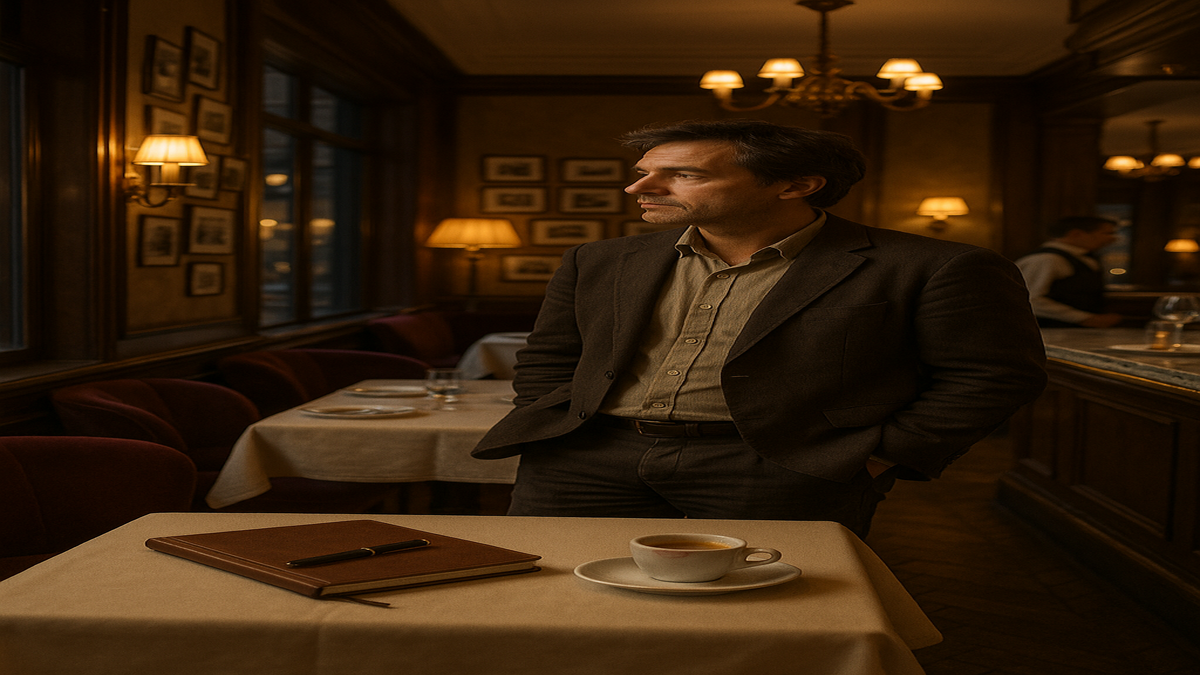Behind every stylishly lit dining room and velvet rope door in central Paris, there’s a business model—and likely, a rivalry. Mention Benjamin Patou in hospitality circles, and you’re bound to stir discussion, if not debate. Yet contrary to mistaken belief, Patou is not the man behind Paris Society. That title goes to Laurent de Gourcuff. Patou, in fact, is his fiercest competitor.
Correcting the record
It’s easy to confuse Benjamin Patou with Paris Society’s success story. Both men turned Paris into a destination not just for cuisine, but for curated nightlife and opulence. Still, any suggestion that Patou is behind Paris Society is flat-out wrong.
Laurent de Gourcuff founded Paris Society in the early 2000s, growing an empire now comprised of over 70 establishments across prime urban rooftops and luxury resorts. Patou, meanwhile, is the founder and president of Moma Group, launched in 2002 under its original name, ProFête. His portfolio is different. His style is different. The competition? Very real.
From DJ booths to boardrooms
Born in Boulogne-Billancourt on June 29, 1977, Benjamin Patou grew up in Neuilly-sur-Seine. His connection to glamour wasn’t just environmental; it was genetic. He’s the great-nephew of legendary fashion designer Jean Patou, an eminent figure in haute couture.
Rather than taking the runway route, Benjamin found early rhythm in music. He became a DJ at age 15—a move that let him access a world of events and social circuits. This early exposure inspired him to form ProFête, an events agency, in 2002. Ten years later, this evolved into Moma Group, a sophisticated ecosystem of culinary and entertainment venues.
Industry conquest through charm and capital
Patou’s approach diverges sharply from that of Gourcuff. While Paris Society goes for skyline terraces and Instagram-bait interiors, Moma Group treated Paris’s culinary past as sacred territory to be reimagined. In 2009, Patou took over the Bus Palladium. In 2018, alongside Antoine Arnault—scion of LVMH—he revived Lapérouse, a 1766-born institution on the left bank.
More than a restaurateur, Patou sees venues as narratives. “He makes you feel like you’re part of a story,” one regular told me after dinner at Lapérouse. That sense of belonging drives Moma’s subsequent expansions: London, Saint-Tropez, Dubaï.
Two moguls, two visions
While Gourcuff’s Paris Society was acquired in majority by Accor for €300 million in 2022 (paris-society.com), Moma stayed privately steered—if financially reinforced. In 2022, private equity figure Walter Butler joined the ride, buying a 35% stake.
Their competition has shaped the city’s elite hospitality landscape, and not without tension. According to sources cited by Town & Country, Nicolas Sarkozy brokered a non-aggression pact between the two rivals in 2019. That says something about the duel’s visibility in upper echelons of power.
“Ben is not trying to be Laurent. He’s trying to outlast him,” said an executive close to both camps. “And so far, he’s not doing too badly.”
A tale of two empires
| Category | Moma Group (Benjamin Patou) | Paris Society (Laurent de Gourcuff) |
|---|---|---|
| Founded | 2002 (as ProFête) | Early 2000s |
| Flagship assets | Lapérouse, Bus Palladium, MANKO | Perruche, Girafe, Maison Russe |
| International presence | London, Saint-Tropez, Dubaï | Mykonos, Dubai, Milan |
| Key investors | Antoine Arnault, Walter Butler | Accor Group |
Expanding ambition
Moma Group’s strategy leans on French exception and heritage. Collaborations with chefs like Jean-François Piège and Marc Veyrat signal gastronomic high standards rather than rooftop-only appeal. Its venues have been praised for surpassing revenue targets, particularly during tourism rebounds post-COVID (StTropezHouse).
The French Ministry for Economy also listed Moma’s contributions to cultural economic zones (economie.gouv.fr), citing venues like Lapérouse as “ecosystemic anchors” of city revitalization.
What inspired Benjamin Patou to start his career in the nightlife industry?
His early passion for DJing opened doors into elite social environments. It taught him how atmosphere, music, and guest experience knit into commercial opportunity.
How did Benjamin Patou’s relationship with Nicolas Sarkozy influence his business ventures?
While not a day-to-day adviser, Sarkozy played a diplomatic role when tensions with Paris Society reached internal industry peaks. The 2019 non-aggression deal isn’t casual; it reflects Patou’s anchoring inside powerful networks.
What are some of the most notable restaurants and venues under Moma Group?
- Lapérouse – historical fine dining near the Seine
- Bus Palladium – revived rock club with dining concept
- MANKO – Peruvian chic on Avenue Montaigne
- Cipriani – located in both Saint-Tropez and Dubai
How has Benjamin Patou’s background influenced his approach to hospitality?
His connection to Jean Patou gave him aesthetic instincts, while his DJ roots gave him rhythm. In business terms, that’s translated to narrative-driven brand identities.
What challenges did Benjamin Patou face when expanding Moma Group internationally?
Cross-border regulations, culinary exporting of French savoir-faire, and risk dilution of brand prestige are constant hurdles. But strategic partnerships—particularly with LVMH-linked names—help Moma leap across them.



